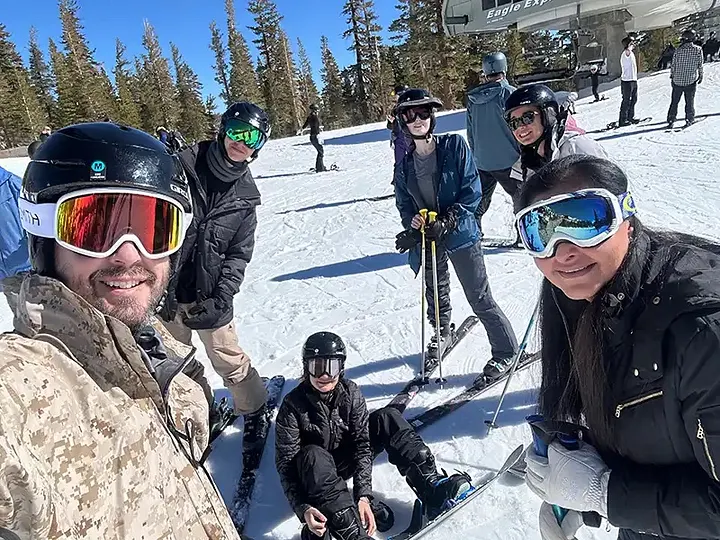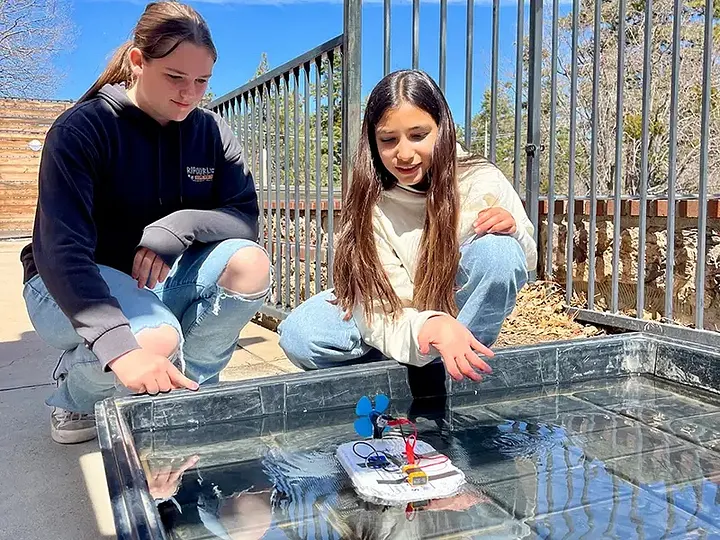“The price good men pay for indifference to public affairs is to be ruled by evil men.”
— Attributed to Plato, The Republic
This quote, attributed to Plato in The Republic, famously explores the consequences of disengagement from governance and public life.
The Unspoken Politics of School Leadership
Schools are particularly sensitive places, and I’ll let you in on a secret: school leaders, like religious leaders, often don’t even know how much to disclose about their own political views. Right now, the needle on this topic isn’t just twitching — it’s buried in the red. Even writing this feels a little subversive! Should schools have political views, and even if they do, should they disclose them?
Education Is a Political Act
Let’s clear the slate before addressing this: education is a political act. Everyone’s views about what ought to happen in a civil society are impacted by the school they attend. Education determines a lot of who gets what. So yes, schools have political views, even if they do not support specific political candidates.
My own first, important priority is simple: it’s the students who must develop, express, and defend political views — not the teachers. The great Socratic teacher probes those views for clarity and defensibility. There is nothing more basic to great teaching of any subject whatsoever than prompting students to explore thinking skills such as:
- Considering all factors
- Prioritizing
- Considering other people’s views
- Anticipating consequences
- Understanding (or creating) rules and guidelines
- Planning out steps of a process or proposal
Cultivating Student Voice and Critical Thought
When students practice using these tools, they arrive at opinions and produce works that are more articulate and defensible. (These tools are based on the thinking skills materials developed by Edward DeBono and not only can’t I imagine The Grauer School without them, there is no material I could possibly urge every English and social studies teacher to incorporate more than these.) When they practice these tools, they are ready to act.
One of my favorite activities as a school leader and teacher has been to actually encourage students to protest, complain, or take action on school policies or social issues that matter to them. When students put their studies into deliberate and thoughtful action, these are the great teachable moments. In those moments, we ought not tell students what their views should be or promote our own ideas as the “right” ones to act on — that’s not teaching. Instead, our role is to probe their views, helping them consider whether those views and resulting actions might infringe on the rights or freedoms of others. They need to understand that such actions can have consequences. It’s through thoughtful questioning that they come to know this.
When Educators Want to Speak Out
Still, sometimes school leaders — presiding over all of this — feel deeply drawn to speak out. We, too, want to exercise our thinking skills and conclusions. To teach is to take a stand — not just on curriculum, but on what kind of world we want to live in — that’s why schools are founded; that’s why people take up the teaching profession. For instance, a major motivation for founding The Grauer School was political: I believed and still do, along with many educators, that the government’s narrow focus on judging the worth and funding of schools based primarily on standardized math and reading scores (e.g., “Common Core” curriculum requirements) would dumb down our schools and the coming generations of U.S. students and weaken our shared future — and I believe it has, though not at Grauer. In fact, we are amidst a noticeable proliferation of small schools and micro schools, and avoiding government regulation — or at least gaining greater autonomy — has absolutely been a motivating factor for many of their founders, teachers, and families.

The Double Standard of Political Discourse in Schools
So, it seems educators are free to discuss politics when it comes to educational policy, but not when it comes to other issues. Should we just “stick to the knitting”?
Consider this: what if a teacher doesn’t stick to the knitting? What if they speak out — in the classroom, in the staff lounge, or on social media — in ways that feel unmistakably political? Then what?
Here’s my view: the school leader’s job is not to suppress political expression, but to create and hold space for its educationally sound practice. If a teacher’s “opinionated” stance undermines open dialogue or creates an unbalanced or unsafe environment for students, that calls for thoughtful, mission-aligned conversation. Not punishment. Not silence. But dialogue… the same kind of probing we want teachers to engage in with students:
- What are your intentions?
- What is the impact?
- Is this serving student curiosity or clouding it?
- And most important of all… how does this align with our shared values as a school?
In these moments, we lead not by laying down law, but by modeling inquiry and perspective-taking — just as we ask our teachers to do every day.
Education’s Central Questions Are Never Simple
Educators, at our best, live our lives in questions. We ask them of our students, of our communities, and of ourselves — not to lead people toward agreement, but toward deeper understanding. And while some of those questions may yield answers that sound political, they just as often lead to even bigger questions:
- What kind of society do we want?
- What does justice require?
- Who is seen, and who is missing?
These are not partisan talking points. They are the soul of education. The role of the educator is not to settle questions, but to keep asking them well, and bigger.
The Challenge of Free Expression in the Digital Age
Obviously there are limits to what we encourage in free speech. One of the most wrenching moments in school leadership comes when we empower students to raise their voices on campus — only to see those voices carried (e.g., on social media) beyond the school walls and into a public discourse that may judge those voices. In those moments, the school’s sacred space of inquiry collides with the wider world, and the leader can feel caught between pride and peril. Many educators blame and detest the social media for this.
When we feel that tension — between the values we encourage inside our schools and the noise outside of them — then we have to ask ourselves: What now? What is our role?
The questions keep getting bigger. For instance, Deborah Meier — one of my many mentors as an educational leader, widely credited as a prime motivator behind the small schools movement (and a MacArthur Genius Award recipient) — spoke out recently. I hadn’t heard from her in some time, so I tuned right in when I received a letter from her — one that shared her opinions and appealed to those of us in schools. She was distraught over current affairs, yet what she offered wasn’t a conclusion, but a question:
“At this moment, I would like us to figure out, or help me figure out, or each other figure out what we do.”
This column is what I can do.

Navigating Self-Censorship and Authenticity
Self-censorship can be frustrating, especially if your life and identity are deeply integrated with your professional role as a teacher, as mine are, and you see “wrong” occurring right in your face. It’s easy to get drawn into wrong every day as we take that pill we call “the news.”
Instead of that pill, I try to ground my commentary and evaluation in direct experience, where I can be most creative and original. I draw upon nature and personal relationships. I try to use local data, and direct observations of students. To create from the world we actually experience is a way to refuse the forces that separate us from one another, from nature, and from our own senses of truth. But the lure and constant beacon of our news feeds is undeniable.
For the sake of being a teacher, I am not a member of a political party, nor have I ever been. I believe the role of an academic is to stand on the balcony of the political debate — to try to explain it, understand it, and help others clarify their views. I also know some people would love for me to express a political view, and, further to that, that some would instantly pounce on it, whatever it is.
Once, for instance, I was writing a column about flying the flag at school. I dared to say I did not believe a Supreme Court Justice should allow the flag to be flown in distress at his own home as a political protest. I didn’t think I was being political — after all, isn’t it supposed to be a fact of life that our Supreme Court is apolitical? And don’t I fly the flag? But I received assorted mail on that one. Though I did not believe I had transgressed, I thanked them anyway and asked for further clarity on some views I could not understand yet, in the most respectful way I could. Did I subversively slide any political view into my questioning? Most likely. Like my students, a part of me wants to be imperfect, or to push edges — the yin yang never quits.

Leadership Through Dialogue
We live in irony. We could find ourselves censoring our own voices as educators — right in the middle of leading a banned books, anti-censorship unit for our own students. We urge them to explore dangerous ideas, to speak freely, to challenge authority, and yet we hesitate to do the same. I think I want to write a story about a teacher who has been censored by their district, then teaching their own book during the district’s “banned books” week. Who’s in!
Oh what a tangled web we weave. Sometimes a teacher expresses overt political views, and that is a challenge for school leadership. We meet that teacher with curiosity, not judgment. We ask the teacher how it serves student thinking. Ask how it aligns with the mission as we search for bigger questions. That’s leadership.
Once, for instance, when a history teacher presented opinions and judgement about what appeared to be unethical actions of a Vice President of the United States, I fronted them and probed as per above. The teacher and I decided that he would go in there the next class and present the views of that Vice President, as a part of a dichotomy, so students could see and consider both sides of the issue. Meanwhile, personally and very privately, I believed the actions of that Vice President to be detestable and terribly harmful. This is the sacrifice educators make. Can it feel painful and even hypocritical? Yes. We have to choose the identity of educational leader again and again, keep practicing that view even if we never arrive.
When DEI Becomes a Political Battlefield
Today, more teachers than I have ever seen have passionate and controversial views about the politics of diversity at schools. So, what about when core values like equity and inclusion come under political attack — when DEI programs are vilified or even defunded by government agencies? School leaders must not flinch. We examine our programs, sure, but we have to be ready to clarify that diversity, equity, and inclusion are not partisan ideas; they are educational ones. They speak to who belongs in our classrooms, whose stories are told, and whose potential is seen. Even as policies shift and political winds blow, school leaders must safeguard our values — not as slogans, but as part of the moral architecture of the learning environment.
This is one reason The Grauer School has chosen to remain independent of federal programs and funding — our development of a pluralistic community comes neither from government mandate nor protest. It is nothing more or less than the right thing to do. When we set our own compass, we protect our ability to stand for human dignity, open inquiry, and belonging without waiting for political permission. All this is the game board teachers live on.

Political Rules for Teachers
So, here are the rules of the game for teachers:
- Create a classroom where all views can be expressed without fear.
- Use inquiry and your love of questions to help students sharpen their views, not mirror yours.
- Encourage students to take civic engagement without steering it.
- Model open-mindedness and civil discourse; be Socratic.
Politicial Rules for Educational Leaders
Are the rules for school leaders different? Here are “Stuart’s political rules for educational leaders:”
- Be clear about your school’s mission and values, articulate them constantly, and let those guide public stances.
- Avoid using the school as a platform for personal politics — let your questions speak.
- Speak out on issues directly tied to education and equity — but make space for dissent, and ask bigger questions, questions tied to your school’s core values.
- Balance transparency with discretion: your voice carries institutional weight, no matter how much you wish to live your private life freely.
- Embrace polarization: Stay open to other perspectives, even when they differ from your own.
Plato’s warning is clear: silence in the face of public affairs has a price. But educators who can hold the space for questions — and let the voices of students speak and fill that space — create a better future. Plato’s teacher was, of course, Socrates, whose method was simply this: probe for clarity.
Join the Small Schools Movement!
Would you like your organization or small learning community showcased in our member spotlight? If you are not yet a member of the Small Schools Coalition, we welcome you to become a friend free of charge.
If you are already a member, contact us to discuss how we can give you the complimentary platform to show the entire world what makes your small school special!


Recent Comments